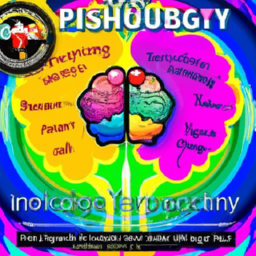The Intersection of Psychology and Marketing: Understand how psychological principles can enhance marketing strategies
When it comes to marketing, understanding human psychology can be a powerful tool. By tapping into the way people think and behave, marketers can create more effective strategies that resonate with their audience.
1. The Power of Persuasion
One of the fundamental principles of psychology that marketers can leverage is the power of persuasion. Knowing how to appeal to people’s emotions, needs, and desires can be a game-changer in marketing.
For example, by understanding the concept of social proof, marketers can use testimonials or customer reviews to influence potential customers. People are more likely to trust and engage with a product or service if they see that others have had a positive experience.
2. Understanding Cognitive Biases
Human beings are not always rational decision-makers. Our judgment can be influenced by various cognitive biases. Marketers who are aware of these biases can use them to their advantage.
One common bias is the scarcity principle. When something is perceived as limited or scarce, it becomes more desirable. Marketers can create a sense of urgency or exclusivity by emphasizing limited availability or time-limited offers.
3. Creating Effective Communication
Psychology plays a crucial role in crafting effective marketing communication. By understanding how people process information, marketers can tailor their messages to be more persuasive and engaging.
For instance, using storytelling techniques can evoke emotions and create a connection with the audience. When people feel emotionally connected to a brand or product, they are more likely to remember and engage with it.
4. Building Trust and Credibility
Trust is the foundation of any successful marketing strategy. Psychology can help marketers build trust and credibility with their audience.
Anchoring is a psychological concept that can be used to influence perceptions. By starting with a higher price and offering a discount, marketers can make customers perceive the discounted price as a great deal. This technique can help build trust in the value and quality of a product or service.
5. Tailoring to Individual Needs
Personalization is a powerful marketing strategy, and psychology can provide insights into understanding individual needs and motivations.
By utilizing techniques such as segmentation and targeting, marketers can deliver personalized messages and offers to specific groups. This approach shows that the brand understands and caters to the unique preferences of its customers, leading to greater engagement and loyalty.
Conclusion
Psychological principles offer marketers a deeper understanding of human behavior, enabling them to create more compelling marketing strategies. By using persuasion techniques, understanding cognitive biases, crafting effective communication, building trust, and tailoring to individual needs, marketers can connect with their audience on a deeper level and achieve better results.
Remember, marketing is not just about promoting a product or service; it’s about understanding and connecting with people. So, next time you’re working on your marketing strategy, don’t forget to tap into the fascinating world of psychology!











